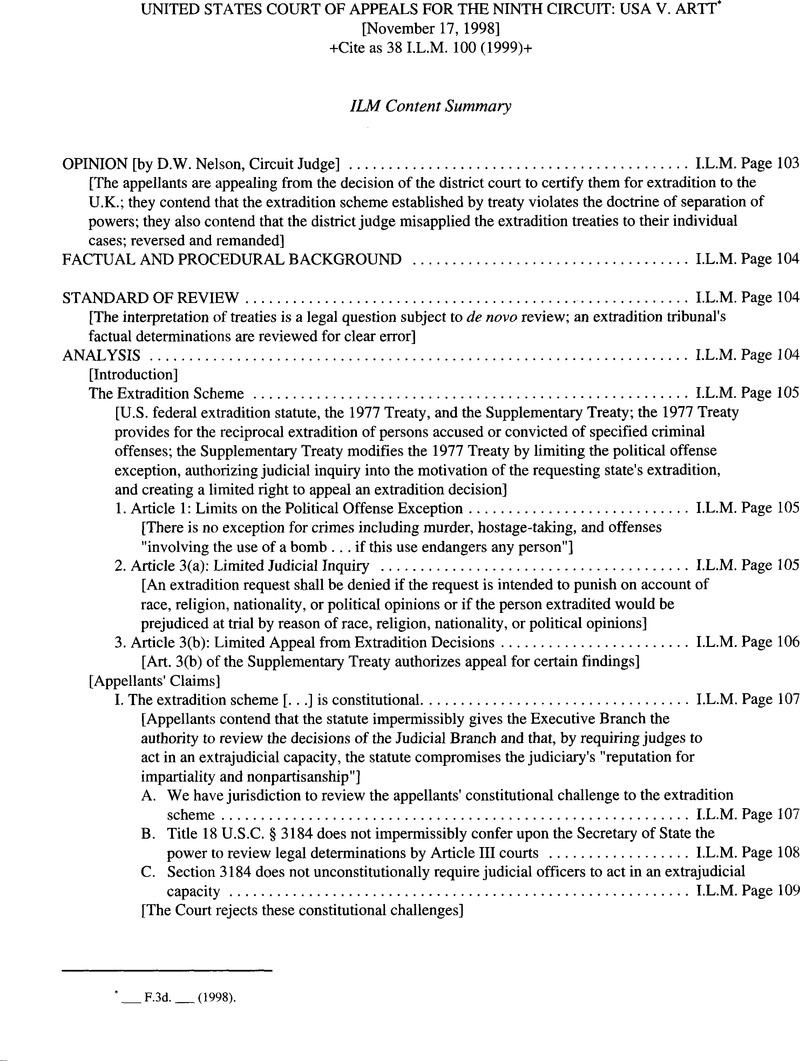No CrossRef data available.
Article contents
United States Court of Appeals for the Ninth Circuit: USA v. Artt*
Published online by Cambridge University Press: 27 February 2017
Abstract

- Type
- Judicial and Similar Proceedings
- Information
- Copyright
- Copyright © American Society of International Law 1999
Footnotes
__F.3d. __ (1998).
References
Footnotes
1 This clause was named after Ninoy Aquino, who was assassinated following his extradition from the United States to the Philippines. See 132 Cong. Rec. S9253 (daily ed. July 17, 1986).
2 Appellant Brennan concedes that he is guilty of the offense of which he was convicted and consequently limits his defense to the second clause of Article 3(a).
1 Turner v. Marshall, 63 F.3d 807 (9th Cir. 1995), is more accurately characterized as a venire-selection case, than a case “in the criminal context.” Id. at 813. Moreover, as discussed herein, use of generalized statistical evidence “in the criminal context,” e.g., to demonstrate disparate sentencing, has actually been rejected by the Supreme Court.
2 In addition, the majority fails adequately to emphasize the caveats attendant with use of statistical evidence. Although the opinion does allude generally to a “cautious approach,” its selective quoting from our decision in Wards Cove results in, I think, an inaccurate depiction of our level of comfort with the admissibility of such evidence. The entire sentence from Wards Cove reads: “We have recognized the importance of statistics as circumstantial evidence of discriminatory intent, but have cautioned that the weight given to them depends on proper supportive facts and the absence of variables.” Atonio v. Wards Cove Packing Co., Inc., 827 F.2d 439, 444 (9th Cir. 1987), rev'd, 490 U.S. 642 (1989) (internal quotation and citation omitted) (emphasis added). See also, International Bhd. of Teamsters v. United States, 431 U.S. 324, 340 (1977) (“[w]e caution … that statistics … come in infinite variety and …their usefulness depends on all of the surrounding facts and circumstances“).




